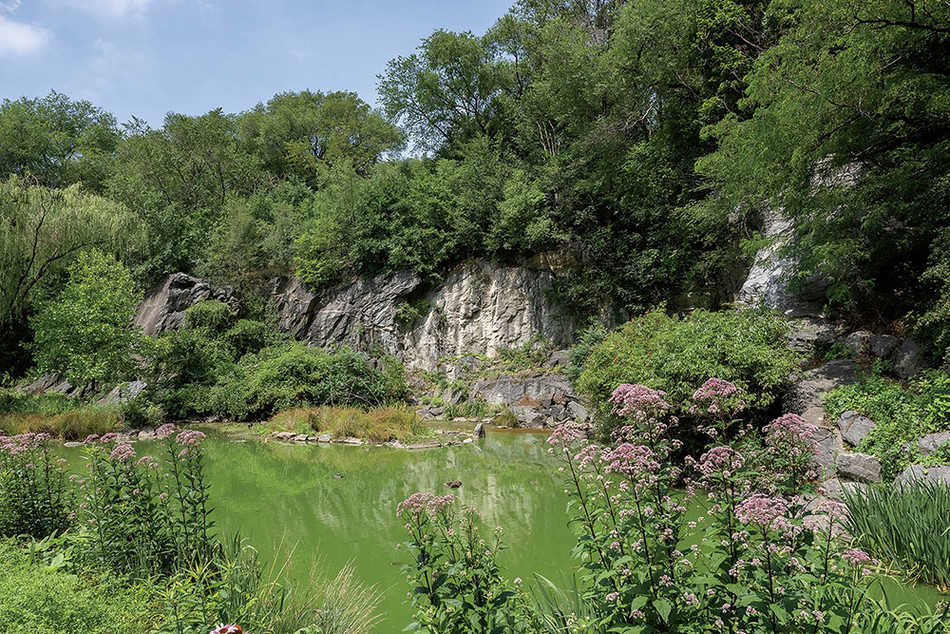Scientists at the Columbia Climate School and the New York City Parks Department have joined forces to address a growing environmental problem: toxic algae blooms that are covering local ponds and lakes each summer, disturbing ecosystems and posing a public-health threat.
On July 15, elected officials, community activists, and Columbia faculty and administrators including President Minouche Shafik attended a public event at the site of one of the city’s affected waterbodies — a pond in Morningside Park, just east of campus — to mark the launch of the project. Lead researcher Joaquim Goes, a Columbia marine biologist, said that he and his colleagues plan to study the pond to better understand the causes of algae outbreaks and to devise new prevention strategies. “Insights we gather here could be applicable to combating harmful algae blooms in other water bodies in the city and around the world,” said Goes, who noted that students from local schools will have the opportunity to contribute to the research.
The event was held on City of Water Day, an annual celebration of water-cleanup efforts in the region. “One of Columbia’s missions is to apply academic expertise to real-world problems and build partnerships with individuals, our community, and organizations beyond the academy,” said President Shafik. “There is hardly a better example of this than the work we will do in our neighboring Morningside Park.”



